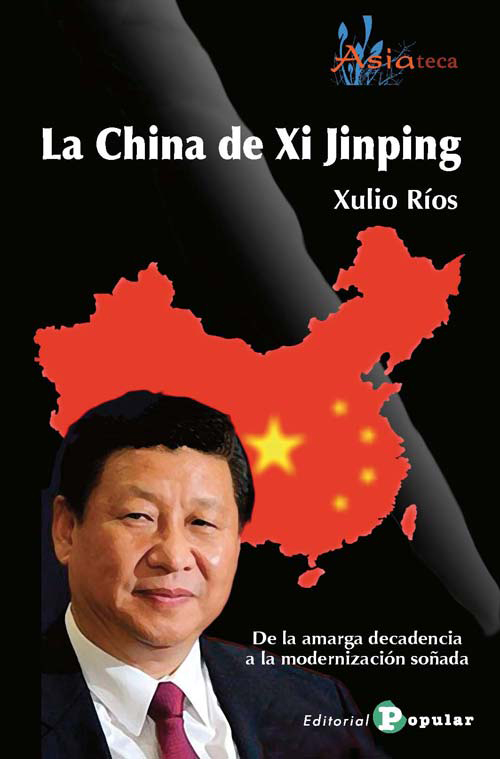Ruta de navegación
Menú de navegación
Blogs
Entries with label xi jinping .
[Xulio Ríos. Xi Jinping's China. From bitter decadence to the dreamed modernization. publishing house Popular. Madrid, 2018. 300 p.]
review / María Martín Andrade
 Given the globally known growth of China in recent years and the uncertainty caused internationally by its giant steps in a rather short period of time, it is worth examining what sustains the Chinese modernization process in order to determine its solidity. Xulio Ríos, expert in sinology and director of the Observatory of Chinese Politics (jointly dependent on Igadi and Casa Asia), carries out this analysis in Xi Jinping's Chinawith approach covering political, economic and social issues. Rios addresses China's role in globalization and how Xi Jinping's 2012 takeover of power has further accelerated the country's rapid modernization.
Given the globally known growth of China in recent years and the uncertainty caused internationally by its giant steps in a rather short period of time, it is worth examining what sustains the Chinese modernization process in order to determine its solidity. Xulio Ríos, expert in sinology and director of the Observatory of Chinese Politics (jointly dependent on Igadi and Casa Asia), carries out this analysis in Xi Jinping's Chinawith approach covering political, economic and social issues. Rios addresses China's role in globalization and how Xi Jinping's 2012 takeover of power has further accelerated the country's rapid modernization.
Ríos begins by identifying the three keys to China's success in the modernization process: the employment of a sound economic policy, the implementation of its own strategy and a strong identity capable of adapting the major currents of international thought to the country's unique characteristics. This adaptation has been at the heart of China's modernization process, whose challenges in the coming years are to move from a Economics of imitation to a Economics of innovation, to invest in fair policies aimed at correcting the inequalities the country faces, and to carve out a niche for itself in the international system without having to abandon its identity.
The Chinese dream is the main element that characterizes this new path that Xi Jinping intends to follow since he became University Secretary of the CCP; a dream that makes reference letter to the illusion and aspirations of a people that has seen its path towards modernization hindered. Unlike Maoism, where traditional culture was seen as an expression of the old society, Xi stresses the importance of highlighting some of the values of popular culture that can help consolidate the nation's consciousness in this century.
The author does not fail to note that the main obstacles to this rapid Chinese evolution are the high social costs of the latest transformations and the environmental bankruptcy that is causing so much serious damage. For this reason, without ever taking his eyes off the Chinese dream, University Secretary of the CCP and president of the country assures us that he wants a beautiful, environmental, rich and powerful China, with global influence, but without ever abandoning his own profile .
As part of the party's governance reform, Xi Jinping persists, like no other previous president, in the importance of the rule of law as an expression of modernization in the form of government. In tune with this, judicial reform has become one of the main thrusts of his mandate to combat the imbalance in the administration of justice throughout the country. On the economic front, the role attributed to the private Economics in terms of modernization is making China the world's leading Economics . The diversification of its investment in foreign reserves and developments in sectors such as automobiles are proving to be an alternative to the Western model aimed at taking the lead in globalization.
Thus, the four modernizations of Xi's governance focus on industry, agriculture, science and technology, and defense. These advances are intended to be complemented by a remarkable drive to strengthen multipolarity, increasing its presence in foreign markets and seeking global recognition of its update through new objectives, such as the revitalization of the Silk Roads, the creation of economic corridors or the Asian Investment and Infrastructure Bank.
Having broken down the different elements that make up the change in China's image, the author concludes by pointing out that, despite the economic development and the increase in political confidence, the country can become more involved and take on more responsibilities. However, due to its structural circumstances and domestic conflicts, China is not yet sufficiently prepared to replace the US or the West in global leadership. Nevertheless, there is nothing to stop Xi Jinping's distinguished move, compared to other Chinese leaders, to assert interests more conspicuously and visibly, with the Silk Road being a clear example of the ambition of the Chinese process.
